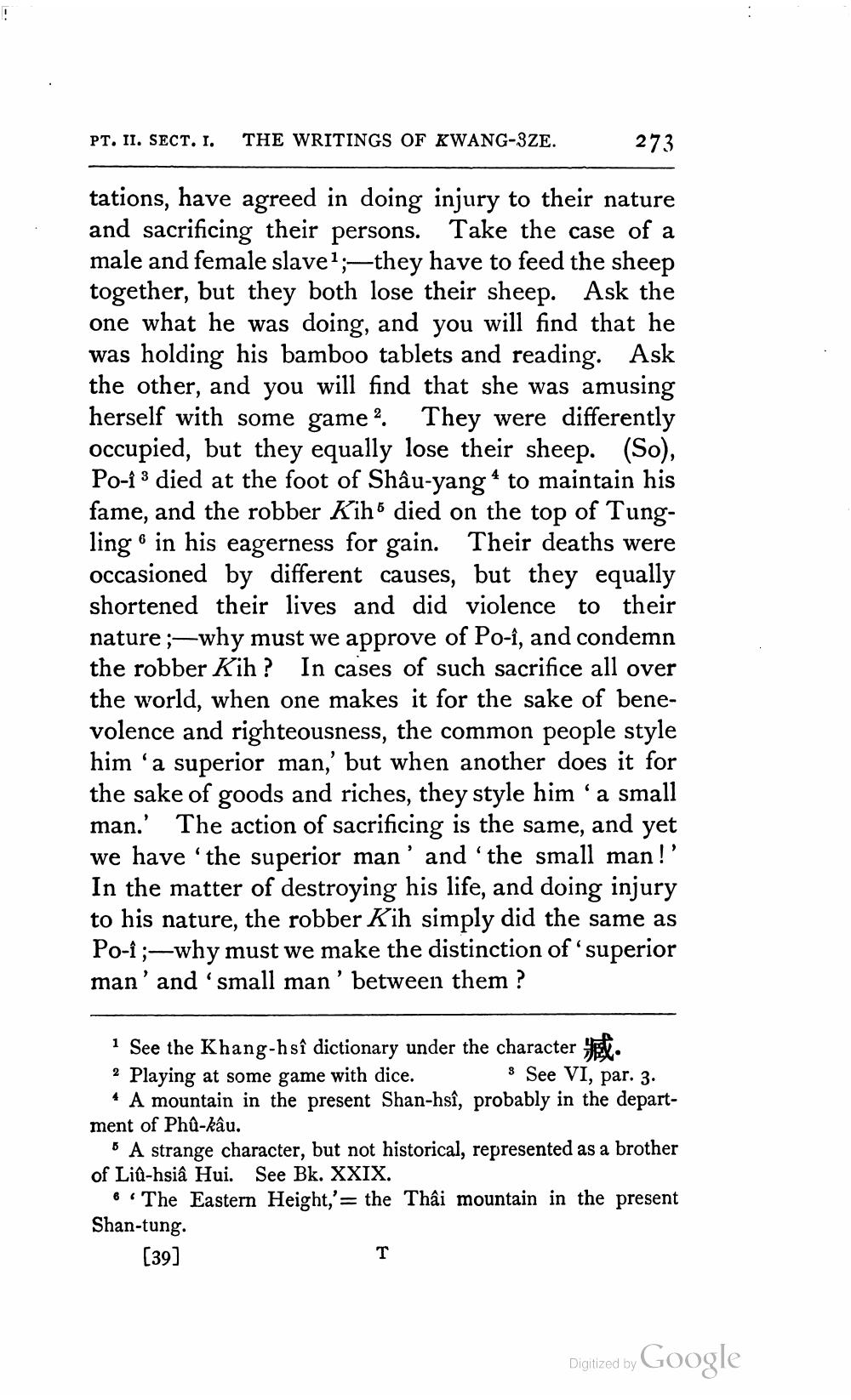________________
PT. II. SECT. I.
THE WRITINGS OF KWANG-SZE.
273
tations, have agreed in doing injury to their nature and sacrificing their persons. Take the case of a male and female slave1;—they have to feed the sheep together, but they both lose their sheep. Ask the one what he was doing, and you will find that he was holding his bamboo tablets and reading. Ask the other, and you will find that she was amusing herself with some game? They were differently occupied, but they equally lose their sheep. (So), Po-i3 died at the foot of Shâu-yang 4 to maintain his fame, and the robber Kiho died on the top of Tungling in his eagerness for gain. Their deaths were occasioned by different causes, but they equally shortened their lives and did violence to their nature ;—why must we approve of Po-î, and condemn the robber Kih? In cases of such sacrifice all over the world, when one makes it for the sake of benevolence and righteousness, the common people style him 'a superior man,' but when another does it for the sake of goods and riches, they style him ' a small man.' The action of sacrificing is the same, and yet we have the superior man' and 'the small man!' In the matter of destroying his life, and doing injury to his nature, the robber Kih simply did the same as Po-i;—why must we make the distinction of superior man' and 'small man' between them ?
1 See the Khang-hsî dictionary under the character C. 2 Playing at some game with dice.
See VI, par. 3. * A mountain in the present Shan-hsî, probably in the department of Phû-kâu.
6 A strange character, but not historical, represented as a brother of Lill-hsiâ Hui. See Bk. XXIX.
6. The Eastern Height,'= the Thậi mountain in the present Shan-tung. [39]
т
Digitized by Google




